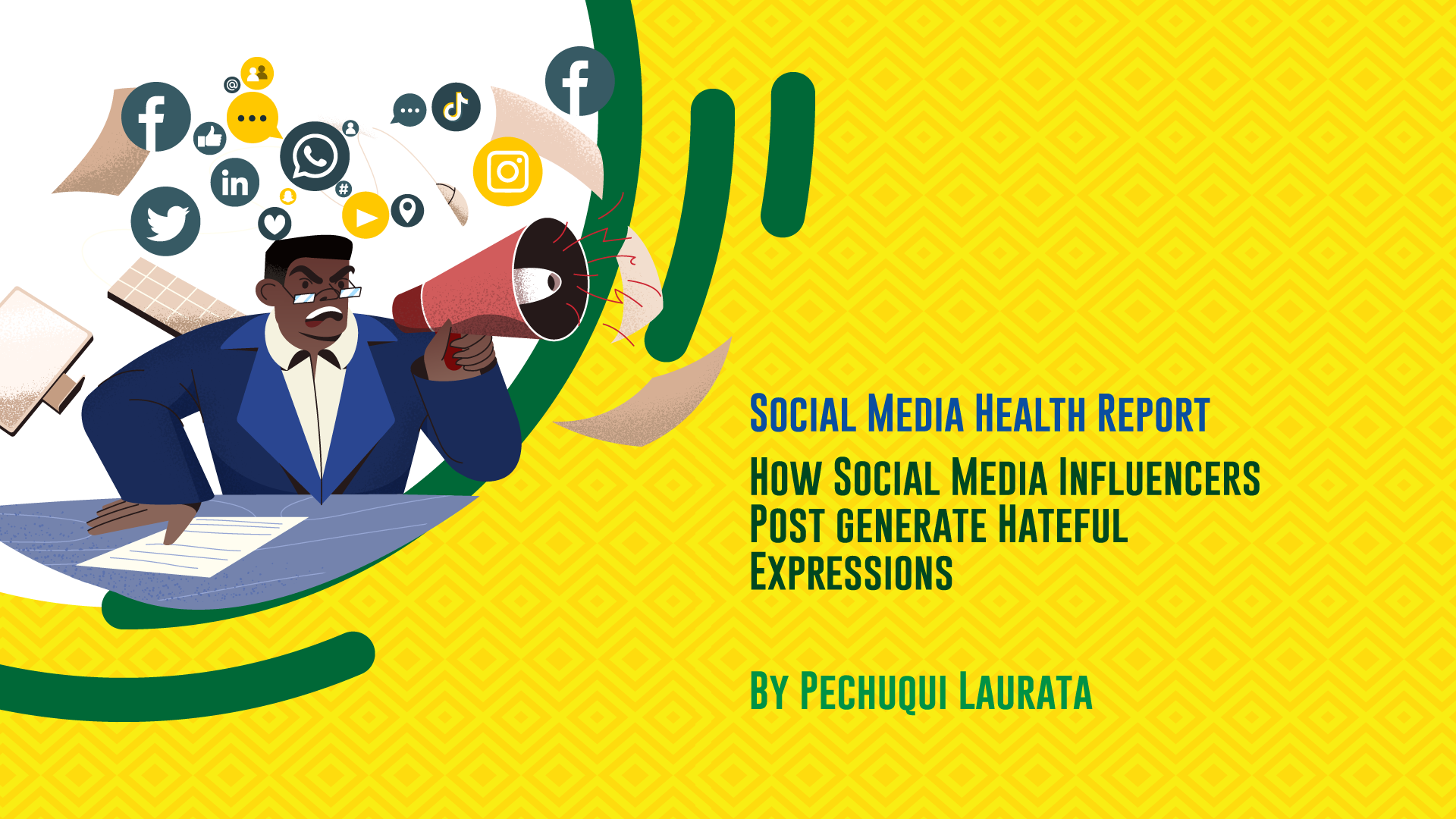Introduction
According to a United Nations expert “Hate speech online is one of today’s most acute challenges to human dignity and life” (OHCHR, 2020). Hate speech which is defined by the European Union law as the public incitement to violence or hatred based on certain characteristics, including colour, religion, descent, and national or ethnic origin spread swiftly on social media leading to disputes, chaos, and violence. Hate speech has been on the rise in recent years in Cameroon. Hate speech which can appear in text, audio, or video form causes harm not only to the targeted individual, or group but also the society.
Bloggers and some influencers in Cameroon are at the center of fan-flaming hateful languages. hate speech is far-flung on social media, especially among youths who are very popular. Most social media handlers who share hateful posts or messages termed it as a joke. The poisonous discourse which stems as a result of prejudice or differences in ideologies has created an unhealthy media space. While civil societies have been working tirelessly to see that hate speech is eradicated from every community in Cameroon including the state who has enacted a law that punishes makes hate speech against people or incites them to violence due to their tribal or ethnic origin.
With these actions, there has still been an upsurge in hate speech in Cameroon, especially against s particular linguistic or ethnic group. For example, people from Pinyin are termed the dirtiest and, Bali girls are called prostitutes amongst others.
Body
Web journalists and social media influencers with huge followers have over the years used hateful language which they termed as jokes to gather traffic to their pages. Here in Cameroon, some bloggers have been noted for sharing these hateful messages of influencers on their platforms too.
On Friday 2nd February 2022, a Cameroonian influencer Dr.Menjo who has more than eleven thousand followers on Facebook shared Post calling a certain group of people ”ngraffi” while also insisting that their girls are orphans.
“Graffi” is a derogatory term used on people of the grass field or grassland areas. Often times it is used to make this group of people feel less.
The hateful post which led to more hateful comments was published by 237palava a web journalist on their Facebook platform
Hateful posts on social media most times carry comments which are hateful, insulting, and comments that puppets disunity. Dr. Menjo’s post was not an exception as most of the characteristics were a reality in the comment section.
Hateful expressions in Cameroon most times usually target an ethnic group. On November 13th, 2022, a popular comedian and social media young Kobo was called out for his hateful post about the “NGONSO”.
The post was followed by lots of hateful expressions against the Kom people and even people from Nso.
These are just a few of the many hateful expressions shared on social media by social media influencers that continues to promote hate, disunity, violence, and unhealthy social media space for every Cameroonian who comes against it.
Conclusion
Even though social media platforms such as Facebook, Twitter amongst others have developed strategies to restrict the use of hate speech, the State enacting a law that punishes people who share hateful comments, and organizations working tirelessly to see that hate speech becomes a thing of the past, the numerous hate speech expression shared on social media continues to spread. Accountability remains an issue as most of these people are not reported to face punishment.
Recommendation
- To Cameroonians.
- Educate everyone around you about hate speech and it’s effects even on social media.
2.Report every hateful post you see on social media.
- To Organizations.
- It is tough for Facebook management to identify hateful language such as “graffi”. So creating a coalition that could send a document to the social media platforms management on the different hateful words will facilitate their work in detecting hate speech.
By Pechuqui Laurata



